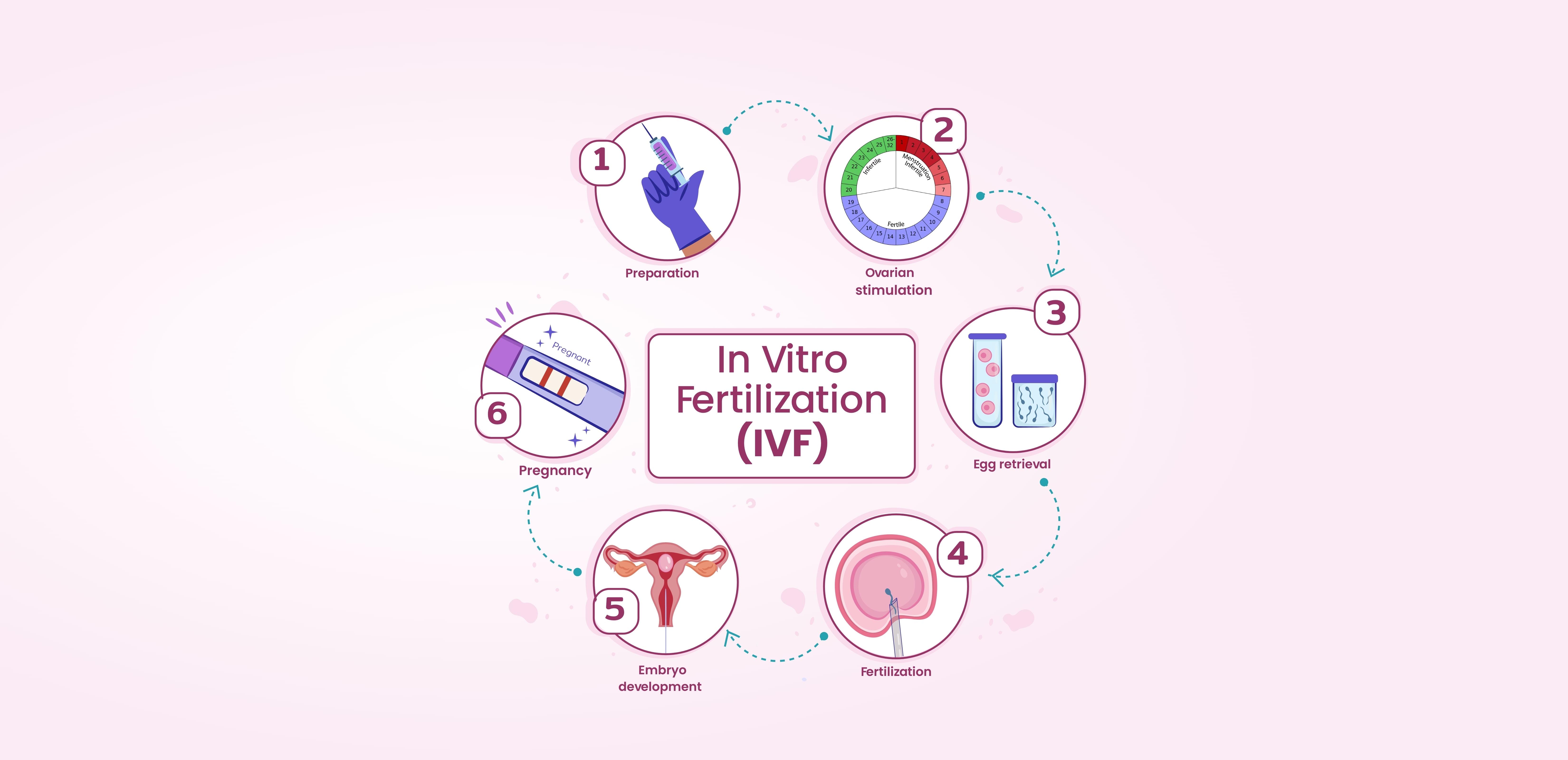
IVF is a type of assisted reproductive technology (ART) that is used to help people who are unable to conceive naturally. IVF uses a combination of medications and surgical treatments to assist sperm in fertilizing an egg and the fertilized egg is implanting in your uterus.
In vitro fertilization (IVF) is a complex set of techniques designed to improve fertility, prevent genetic abnormalities, and aid in childbirth. When couples are having difficulty conceiving, IVF is the most effective option for them to become pregnant.
Our doctor can address any concerns or questions you have about the risks and side effects of IVF.
IVF is a reproductive technique in which we fertilize a woman's egg with sperm in a laboratory dish. Following fertilization, the embryo is returned to the woman's uterus.
In IVF, a woman is given medications or fertility hormones to stimulate her ovaries to produce multiple eggs. In a laboratory, the eggs are harvested and combined with sperm (fertilization). These fertilized eggs are referred to as embryos. When the sperm quality is deemed 'normal,' IVF is performed. If there are problems with the sperm quality, such as low motility or numbers, an intracytoplasmic sperm injection (ICSI) procedure may be done, in which a single sperm is inserted into the egg. After successful fertilization, the embryos are allowed to grow for 2-6 days, allowing the embryologist to select the strongest embryo. The chosen embryo is subsequently returned to the woman's womb in the hopes of a successful birth.
In vitro fertilization (IVF) is a method of treating infertility or genetic disorders. If IVF is used to treat infertility, you and your spouse may be able to try less intrusive treatment options first, such as fertility medicines to enhance egg production or intrauterine insemination – a process in which sperm are inserted directly in the uterus near the time of ovulation.
IVF is sometimes recommended as a main treatment for infertility in women over the age of 40. If you have certain medical issues, IVF can also be performed. For example, if you or your partner suffers from:
Fertility preservation in the case of cancer or other medical disorders. If you are going to begin cancer treatment that may affect your fertility, such as radiation or chemotherapy, IVF for fertility preservation may be a possibility. Women can have their eggs removed from their ovaries and frozen unfertilized for future use. Alternatively, the eggs might be fertilized and saved as embryos for later use.
Women who do not have a functional uterus or for whom pregnancy poses a significant health risk may choose for IVF with another person carrying the pregnancy (gestational carrier). The woman's eggs are fertilized with sperm in this situation, but the resulting embryos are implanted in the gestational carrier's uterus.
Major steps are followed to complete IVF under expert care and monitoring:
If you struggle with chronic health diseases or a congenital heart condition, having a baby becomes more critical if you seek any infertility treatment. But IVF is proven to be the best alternative. But does it mean you can get your IVF done anywhere? No.
You need Hospital-based IVF to carry your pregnancy under expert supervision. Over the years, there have been complex cases where women have difficulty getting successful results with IVF, but the right care will leave you with the expected results at the right time. And this is only possible when Hospital Based IVF works as a boon for couples. The past successful cases at Juhi Fertility Clinic are the validation of themselves, and happy families are our flag-bearers.
In some cases, it may require several months of preparation and planning to achieve a pregnancy which requires a meeting of experts in IVF treatment, case studies, and the exceptional case of the patient. It becomes possible with hospital-based IVF and personalized care to meet the expected goals. Our interdisciplinary team at Juhi Fertility Clinic makes it possible while seamlessly dealing with fertility and obstetric care.
If you are reading it here, you might now be confident to seek hospital-based IVF, so why not get an expert call back from Juhi Fertility Clinic? We make it quick to see you complete your happy family.
The success rates of IVF are determined by a number of factors. These factors may include the cause of infertility, whether the eggs are frozen or fresh, donated eggs or own eggs, age, and so on. At Juhi Clinics, the success percentage of an IVF pregnancy in situations of PGS/PGD is up to 91%. With our incredibly high success rates and genetically advanced technologies, not only is your pregnancy guaranteed, but you will also get genetically healthier infants.
Choosing whether to use in vitro fertilisation and how to proceed if the first attempt fails is a difficult issue. This process can have a financial, physical, and emotional toll. Speak with your doctor thoroughly to assess your best alternatives and whether in vitro fertilisation is the best decision for you and your family. Seek out a support group or a counsellor to assist you and your partner through this difficult time.
The Centre for Infertility & IVF at Juhi Fertility Clinics has some of India's most experienced and qualified specialists, who have assisted many couples in realising their aspirations of becoming parents. Our doctors constantly make certain that you receive the greatest possible care and support at every stage of your treatment. They realise the type of assistance you require when dealing with your inquiries. They will offer you with the best treatment possible using our cutting-edge technology and machines. Our gynaecologist and infertility consultants have over 25 years of experience and are among India's leading as well as internationally known infertility and IVF specialists. They received her IVF and embryology training from some of the most reputable facilities.
Your email address will not be published. Required fields are marked *